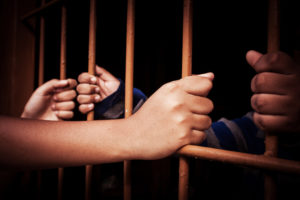If you are the parent of a child who has been accused of a crime then it is essential that you either do your research and find out the specifics of the juvenile crime system versus the adult crime system, or that you have a professional on your side. In fact, at Law Office of Michael L. Fell we recommend both. Keep reading to find out why this is so important and then contact us at (949) 585-9055 if you need a free legal consultation.
Classifying a crime as a juvenile crime
For the most part, if a person is between the ages of 10 and 18 then they will be classified as juveniles for most offenses. There are some areas that consider children between 16 and 18 to be adults for legal purposes. Youth can also end up facing adult charges if their acts are considered serious or violent enough to be faced as adults.
Juveniles go through adjudication hearings
In a juvenile trial, the accused does not have the same type of trial that an adult would have. Instead, they have an adjudication hearing. There is no jury in this process. There will be a single judge hearing the case, deciding on guilt, and providing a punishment. While this may seem frustrating, and does involve reducing the rights a person has if they are underage, there are also protections that juveniles get.
Records can be more easily expunged when a youth is tried as a juvenile
In the case that a person is tried for their crimes as a juvenile, their record will be sealed and expungement will be an option. Expungement is also often an option for adults, but in the case of juvenile crimes it is much easier. The person in question will still need to meet certain requirements, such as not committing additional crimes, and there are some crimes for which expungement is not an option. That said, a juvenile case is more likely to be expunged than an adult case.
The purpose of these courts is different
The purpose of adult court is to punish criminals. This means that the judge and jury are likely to lock up someone for as long as they think is necessary for them to learn their lesson. On the other hand, the way the juvenile court is supposed to work is to look toward redeeming a child, not punishing them. As a result, it may be easier to get a more lenient sentence. For example, a judge who is looking at drug charges against a juvenile is going to be working toward helping that child get over the addiction rather than punishing them.
No matter which way your child is tried, whether as an adult or as a juvenile, it is important to get the best possible legal representation. At Law Office of Michael L. Fell, we know we can provide that. Call us today at (949) 585-9055 to get a free legal consultation. If your child is facing discipline from their school, we can help with that too.


